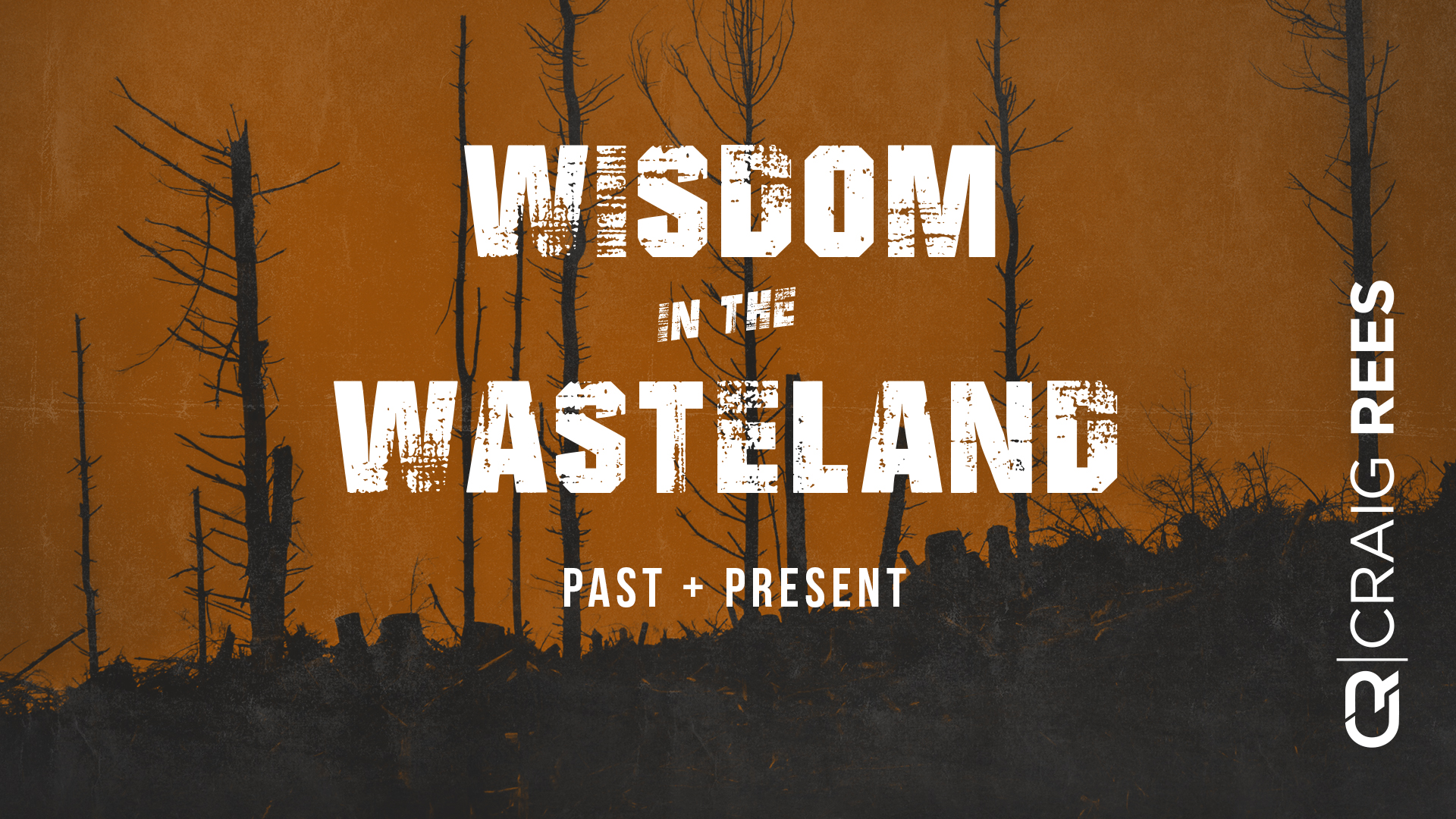New Series This Sunday: Wisdom in the Wasteland
This weekend we start a four-part series entitled, Wisdom in the Wasteland. It’s a journey through the Old Testament book of Joel.
I’ve been behind the pulpit of a church for well over two decades now. Throughout that time, I’ve been very reluctant to touch books with strong eschatological overtones. The issues are so difficult and so divisive that I’ve thought it best to stay well clear.
Something happened to change that.
It all began when I joined a group committed to read through the entire Bible in 90 days. The speed with which we walked through the text helped me see connections between books that I’d never consciously seen before. The three-chapter book of Joel, sandwiched as it is between Hosea and Amos, was familiar to me mainly through the sermon of Peter on the Day of Pentecost. As I read the book within the context of that ninety-day sprint through the Bible, so many Old Testament themes reoccurred that I found myself compelled to go back to the book and trawl through it a little more thoroughly.
I’m glad I did. This book is a gold mine. What I learned has provoked Steve and I to share our thoughts and feelings with our church family. The series is part apologetics and part eschatology.
We're doing this series because we live in interesting days. The Bible is clear that God has everything under control. That said, the Bible calls us to share what we know with the world. Are we sharing with wisdom as we wait for the second coming of Jesus?
As early as verse 3 of the opening chapter, Joel calls on people to tell others what God’s doing in the world. Before opening their mouths, however, these people are called to hear and listen (discern) to God’s perspective on what they are experiencing.
When reading Joel within the context of the Old Testament, one of the most striking features is the number of similarities between Joel and other Old Testament books. If Joel was earlier than these other prophets, we’d conclude that he influenced his successors more drastically than we’d expect of such a short book. More likely, however, Joel saturated his mind with the concepts and ideas of those who went before him. As Joel stood facing the issues of his day he referred back to what had already been shared, applying these words to the challenges God’s people were facing. Joel is, then, essentially an interpreter, not of languages but of national calamity. He encourages God’s people to discern what God is doing in their world before they open their mouths to speak.
Over the next four weeks Steve and I are going to walk through a book that exposes us to very interesting and relevant issues. There’s the question of natural disasters. What to do with the constant rhetoric of God's judgement being unleashed on the world. There’s the question of how we wait patiently for a renewal that is promised but hasn’t arrived. Finally, there’s the question of what we do when the nations rage.
These are some of the themes the book of Joel addresses.
We begin this week with chapter 1 and the theme of natural disasters.
I’m writing these words as wild fires rip through parts of the US, have ravaged Greece, and are burning in the arctic in Sweden. No one would have imagined that the Lapland would be home to one of the world’s busiest fire brigades. Deadly heatwaves across Europe have killed many and satellites have even picked up massive fires in Siberia! The Scandinavian country of Norway, known for its fjords has reported three times more wildfires already than are normal in an entire year. Over the last decade hundreds of thousands of people have died as the earth does what it does.
What do we say to all this? As Joel looked at his homeland, now a wasteland, he encouraged His people to respond in a way we’re sadly not used to seeing the church do.
On Sunday I’m going somewhere I’ve not dared go before. I’m turning us to a book that reminds us that what we say and how we pray matters. No matter how bad things seem, a faithful Christian response goes a long, long way. It doesn’t matter how desperate things seem and how powerless we feel in the force of nature and/or nations. God, even in the face of disaster, invites us to engage with Him over what is happening in our world.
I hope you can join us as we kick of our August series, Wisdom in the Wasteland. I believe it’s going to be a profoundly mind-shaping journey for us all.
For those of you on vacation, make use of the livestream. You won’t regret it.
Can’t wait to worship with you all.
Craig


Leave a Comment